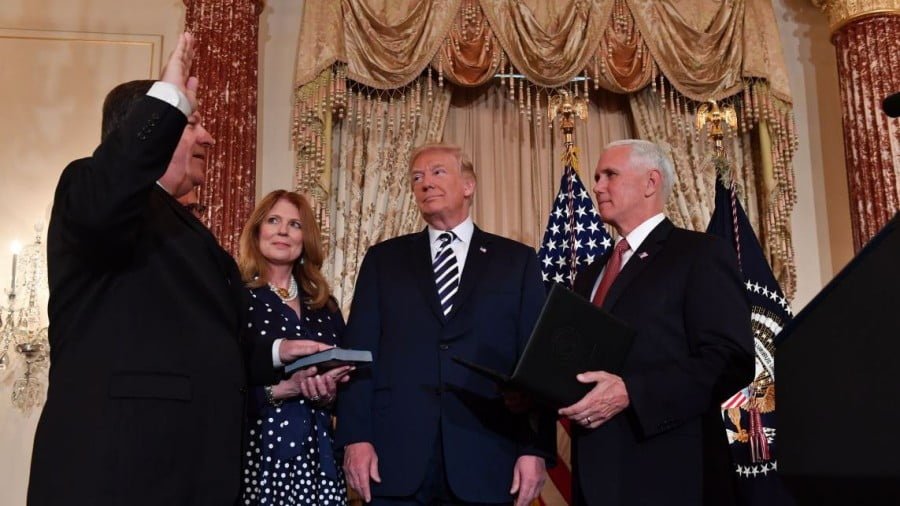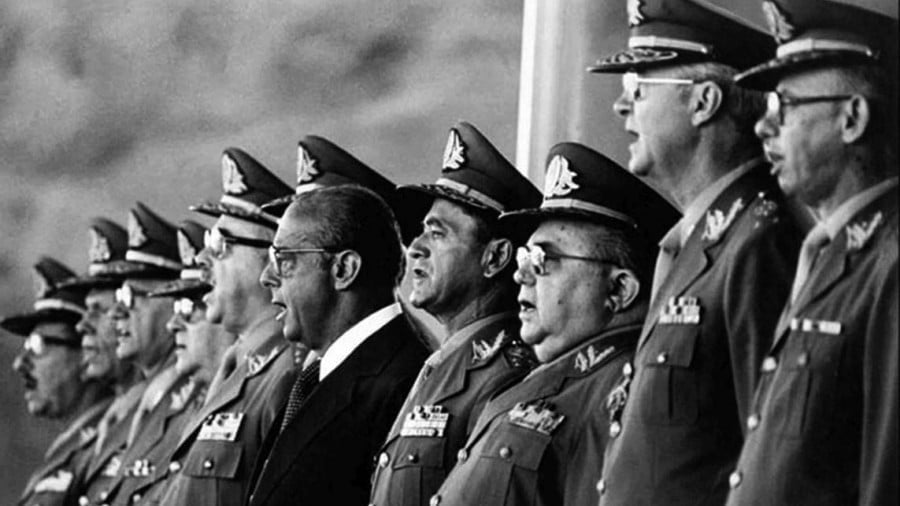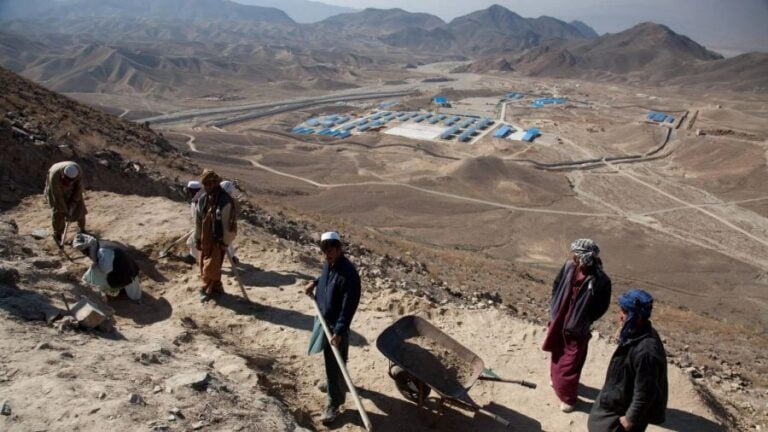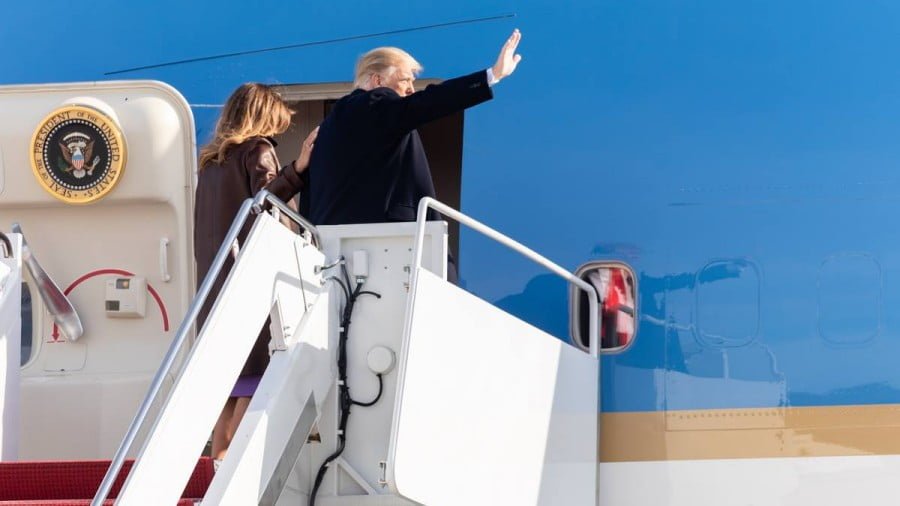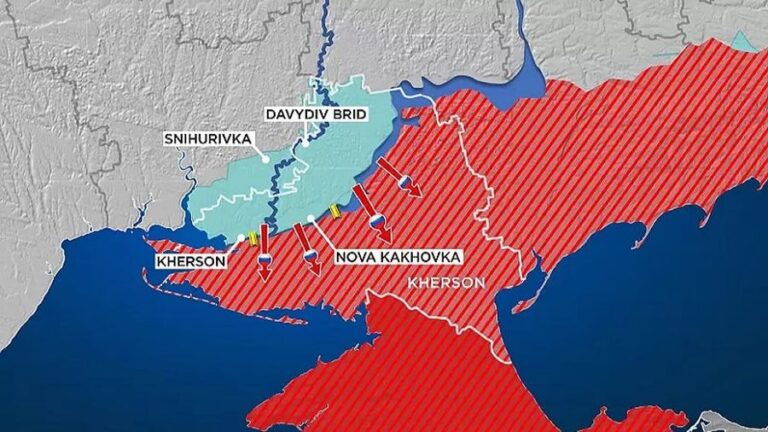Washington’s Gunboat Diplomacy
Great powers throughout history often become lazy. This translates into opting for easy solutions by force majeure to problems that might better be dealt with more constructively, a process once referred to as “gunboat diplomacy.” The United States has fallen into that trap, operating under the assumption that military power is ultimately the only thing that matters. It has done so since President George W. Bush announced to the world in the wake of 9/11 that “you are either with us or against us” and proceeded to invade Iraq, which had not been involved in the terrorist attack. President Barack Obama continued in that vein when he bombed Libya and increased involvement in Syria.
Currently the wheel has turned somewhat more towards fully embracing reactionary responses to world events. Last week the media reported additional details regarding last August’s discussion in the Donald Trump White House over the desirability of mounting a military intervention in Venezuela to remove the admittedly dystopic and despotic government of President Nicolas Maduro. For those who are not following developments in the Southern Hemisphere closely, the Venezuelan “Bolivarian” government is an updated version of South American old-style communism promoting an aggressive populism that endorses class warfare.
Political demonstrations over the past two years protesting the deteriorating economy and the threat to what remains of the country’s democracy have been suppressed by violence initiated by heavily armed police in which dozens died. The National Assembly, which is controlled by the political opposition, is being ignored by Maduro, who is basically ruling by decree. Since he controls the security apparatus there is no one to tell him what he cannot do.
Venezuelans, sitting on an ocean of oil reserves, are starving, unemployed, plagued by hyperinflation not seen since post-World War I Germany, and fleeing the country in their hundreds of thousands. Credit both internationally and domestically has vanished and foreign companies that had set up shop in the country, which refuses to allow them any longer to repatriate their profits, have fled, meaning that consumer goods once readily available have disappeared from the shelves.
So Venezuela is indeed a basket case and a growing problem for neighbors in South America, but the ones who are suffering most are the Venezuelans themselves, who, one would think, should be the most likely candidates for removing their own government. Not so, according to President of the United States and Leader of the Free World Donald Trump, who, according to the reporting from advisers that actually sat in on the meeting, suggested that there might be a military solution to the problem, i.e. the United States should intervene to restore order and “democracy.” This discussion apparently took place nearly a year ago when the violence in Venezuela reached such a level that it appeared to be threatening to morph into civil war.
According to the Associated Press account, “As a meeting last August in the Oval Office to discuss sanctions on Venezuela was concluding, President Donald Trump turned to his top aides and asked them an unsettling question: With a fast unraveling Venezuela threatening regional security, why can’t the US just simply invade the troubled country? The suggestion stunned those present at the meeting…” Trump’s aides reportedly discussed with him the dangers inherent in such a proposal, mostly in terms of costing support of Venezuela’s neighbors, who are already behind punitive sanctions to isolate Maduro’s regime and have been swamped with a refugee crisis. Intervening would also revive unpalatable memories of American incursions in various Latin American countries during the twentieth century.
But Trump, who appears to have no Latin America policy apart from punishing “socialist” Cuba and Venezuela, persisted in his support of a military incursion as a possible option, citing relatively recent Reagan-era interventions in Panama and Grenada as success stories. He also mentioned the possibility of an armed response in a press conference on the following day, a comment was reported and predictably produced a wave of support inside Venezuela for Maduro.
Even in government circles, behavior should be conditioned by “reality checks” or even referral to one’s “moral compass” when planning potentially lethal operations, if only to restore some sense of what might be both practical and ethical. Apparently that pushback against executive branch adventurism has long since disappeared and there are few in Congress or the media that are willing to challenge runaway American imperialism. Invading Venezuela would have been a very bad idea, but the untrammeled growth of executive authority in the United States means that if Mr. Trump had pushed a little harder he might have obtained what he wanted. It is a reality that should worry every American.

